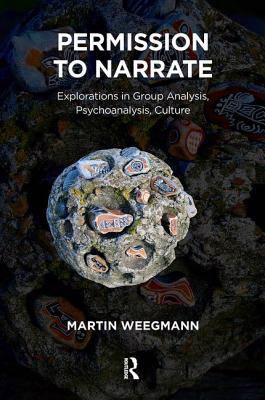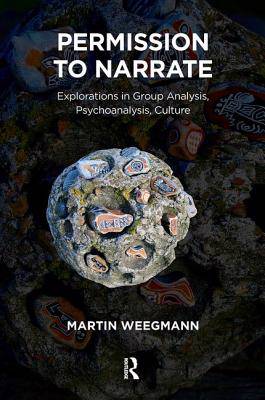
- Afhalen na 1 uur in een winkel met voorraad
- Gratis thuislevering in België vanaf € 30
- Ruim aanbod met 7 miljoen producten
- Afhalen na 1 uur in een winkel met voorraad
- Gratis thuislevering in België vanaf € 30
- Ruim aanbod met 7 miljoen producten
Zoeken
Permission to Narrate
Explorations in Group Analysis, Psychoanalysis, Culture
Martin Weegmann
Hardcover | Engels
€ 182,45
+ 364 punten
Uitvoering
Omschrijving
Permission to Narrate develops exciting new theory and explorations for group analysis. They are diverse in range and, from differing bases in theory and research, aim to cast light on how clients find voice and speak out in groups and the importance of rhetoric in the understanding of communication. It addresses the ways in which silenced, submerged and less confident voices emerge, finding permission and narration, often against the odds. Positioning and dialogical theory is used to show how such voices are caught up in and defined by discourses, and also how we can transcend the definitions and positions into which we are thrown. Accessible clinical and historical examples bring theory to life. Permission to Narrate also uses applied group analytic theory to consider the cultural role and rhetoric of monsters, and what these representations tell us about the position in which human beings conceive themselves. Also explored, using applied group theory, are the meetings of Alcoholics Anonymous and Quakers, both serving as remarkable examples of different, alternative group formations.
Specificaties
Betrokkenen
- Auteur(s):
- Uitgeverij:
Inhoud
- Aantal bladzijden:
- 168
- Taal:
- Engels
Eigenschappen
- Productcode (EAN):
- 9780367103804
- Verschijningsdatum:
- 5/07/2019
- Uitvoering:
- Hardcover
- Formaat:
- Genaaid
- Afmetingen:
- 157 mm x 234 mm
- Gewicht:
- 453 g

Alleen bij Standaard Boekhandel
+ 364 punten op je klantenkaart van Standaard Boekhandel
Beoordelingen
We publiceren alleen reviews die voldoen aan de voorwaarden voor reviews. Bekijk onze voorwaarden voor reviews.











